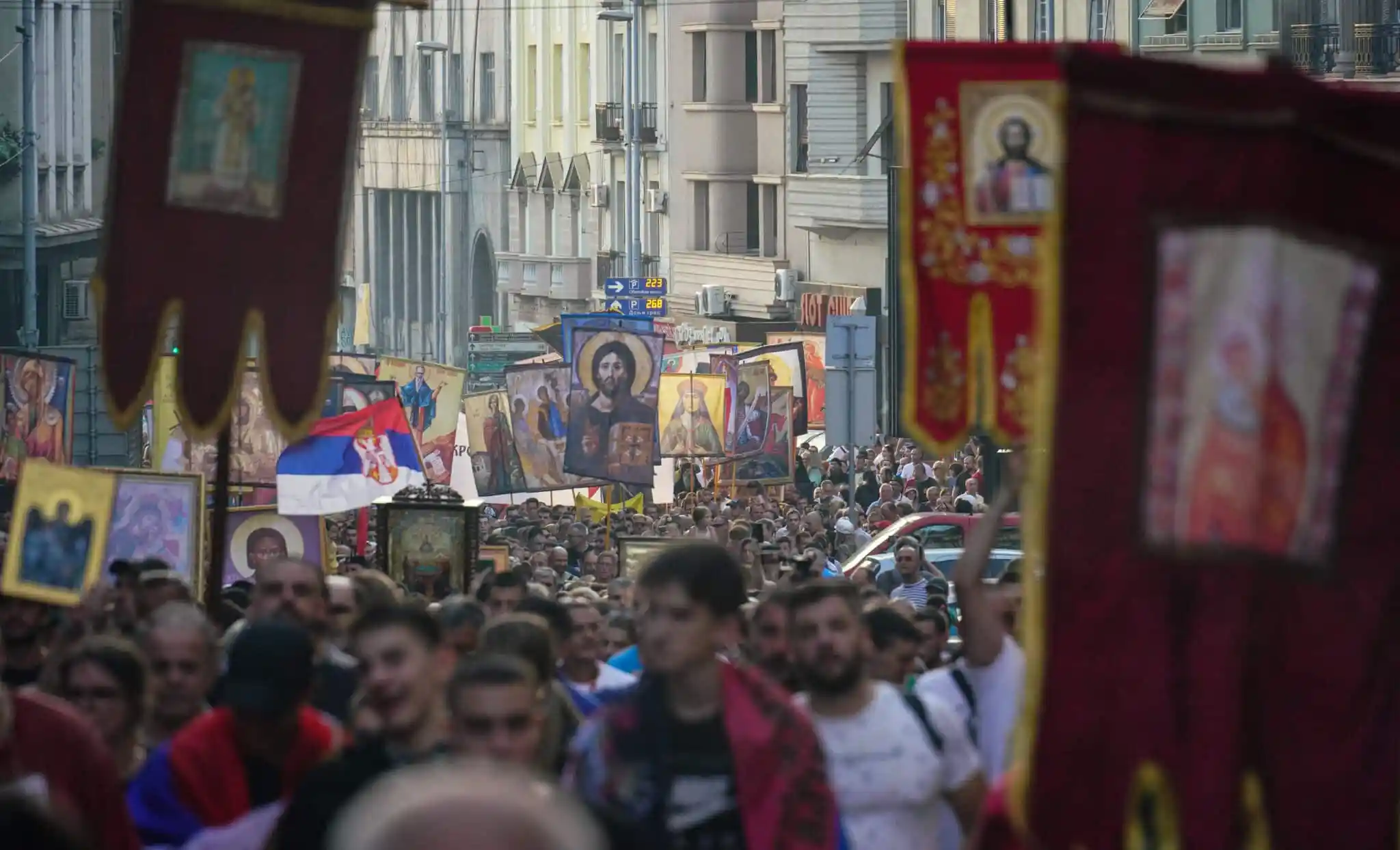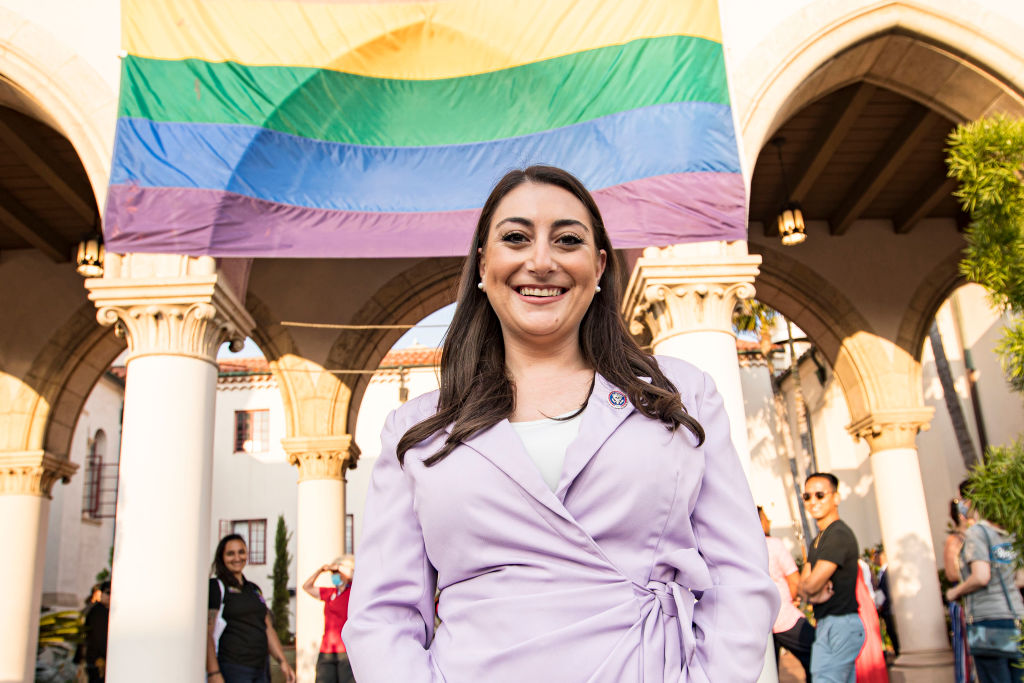Beleaguered EuroPride march banned by Serbian police amid mass anti-LGBTQ+ protests
EuroPride flags flutter during the opening ceremony of the EuroPride 2022 in Belgrade, on September 12, 2022. (Photo by OLIVER BUNIC / AFP) (Photo by OLIVER BUNIC/AFP via Getty Images)
The EuroPride march route has been officially banned by Serbian police following mass anti-LGBTQ+ protests.
The event, which takes place in a different European city each year, was due to take place in Belgrade on Saturday (17 September) as part of Serbia’s bid for membership to the European Union.
But the event found itself under increasing scrutiny by religious and anti-LGBTQ+ protestors, including a march led by clergy from the Serbian Orthodox Church, who used rhetoric about “saving children” and “protecting family values” to push their hateful message.
Now, several weeks after Serbian president Aleksandar Vučić said the event would be postponed indefinitely due to vague suggestions of “security concerns”, Serbian police officially announced a ban on the route of the EuroPride march on Tuesday (13 September).

In a statement from the European Parliament’s Intergroup on LGBTI Rights, several of the 145 MEPs who signed a letter to Serbian leadership condemning their postponement of events and urging the government to maintain their promise of EuroPride have spoken out against the announcement.
“We regret the decision taken by the Serbian police to ban the route of the EuroPride march, LGBTI Intergroup co-chair Terry Reintke MEP (Greens-EFA) said.
“We have been in constant contact in the last weeks with the Serbian authorities calling for political willingness in finding a solution that ensures all demonstrators’ security.
“We insist that all efforts must be employed to find a compromise solution.”
After president Vučić’s postponement in August, the European Pride Organisers Association (EPOA) president Kristine Garina said at the time he could not “cancel someone else’s event”.
She said banning the march would violate Serbia’s commitment to the European Convention of Human Rights, which is important to follow when applying for an EU membership.
It’s unclear whether this ban will affect negotiations at this time.
Serbia has been attempting to join the union since 2009, but has hit several roadblocks involving human rights violations. Its history of banning Pride parades initially received criticism from official human rights organisations, including a march in the early 2000s that become violent after anti-LGBTQ+ protestors breached the proceedings.
But after several peaceful Serbian Pride parades went off without a hitch, EuroPride had allowed Belgrade the opportunity to be considered for hosting the 2022 event, which it eventually accepted.
In a letter to the EPOA, former prime minister Ana Brnabić wrote that the government was ready to “ensuring the full respect of human rights” and promised to help the Belgrade Pride organising team create a “safe and successful” EuroPride event.
Fellow co-chair of the LGBTI Intergroup Marc Angel MEP (S&D Group) said: “We have urged authorities to liaise, to negotiate and to agree on a compromise, which to this point was clear – a shorter, secure route, enshrining the principles of peaceful assembly and freedom of expression.
“We repeat – these rights must be ensured for those defending them and we maintain trust that a solution will be found. We urge authorities to put all focus on a credible solution to be proposed to the organisers.”






